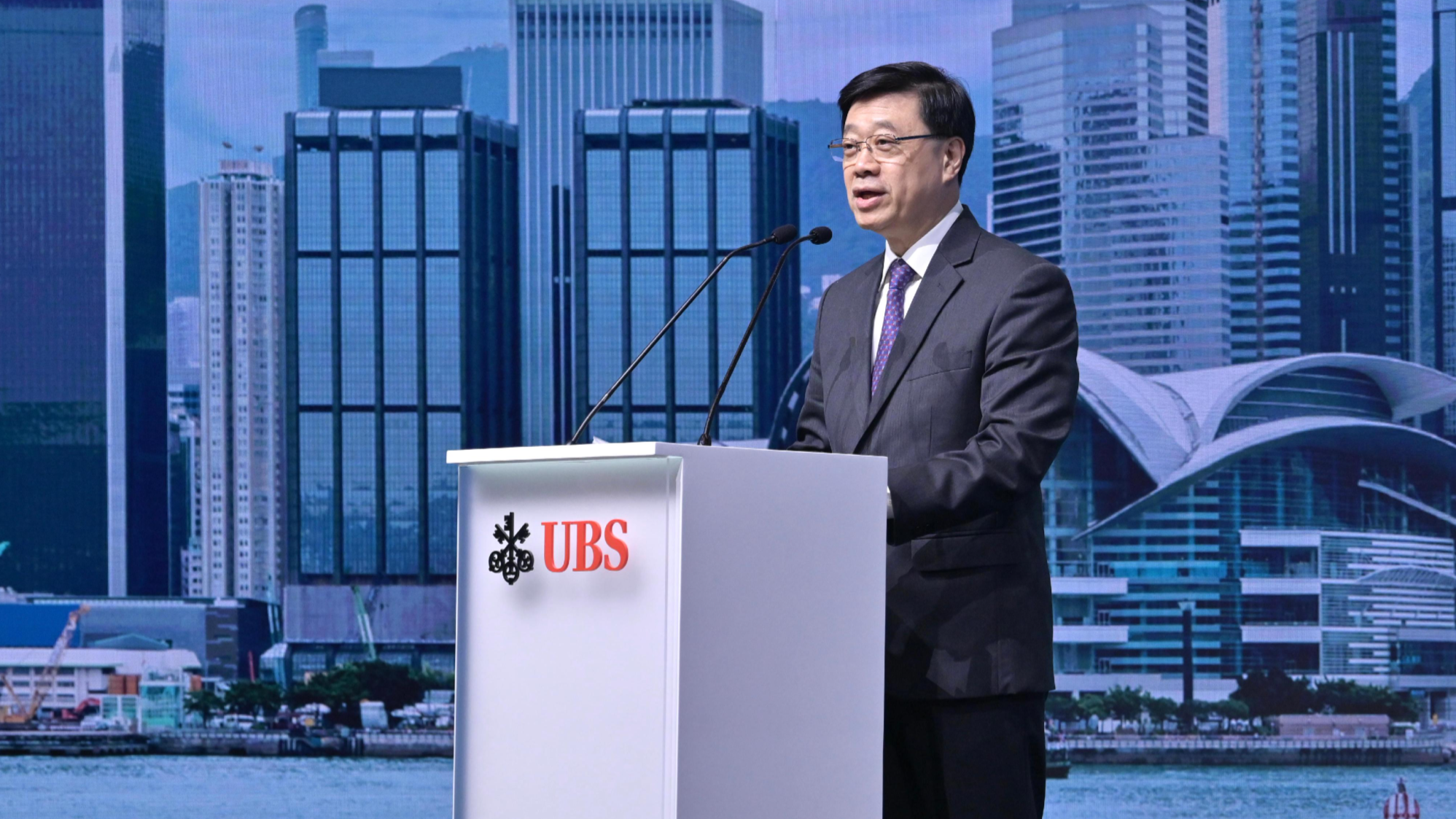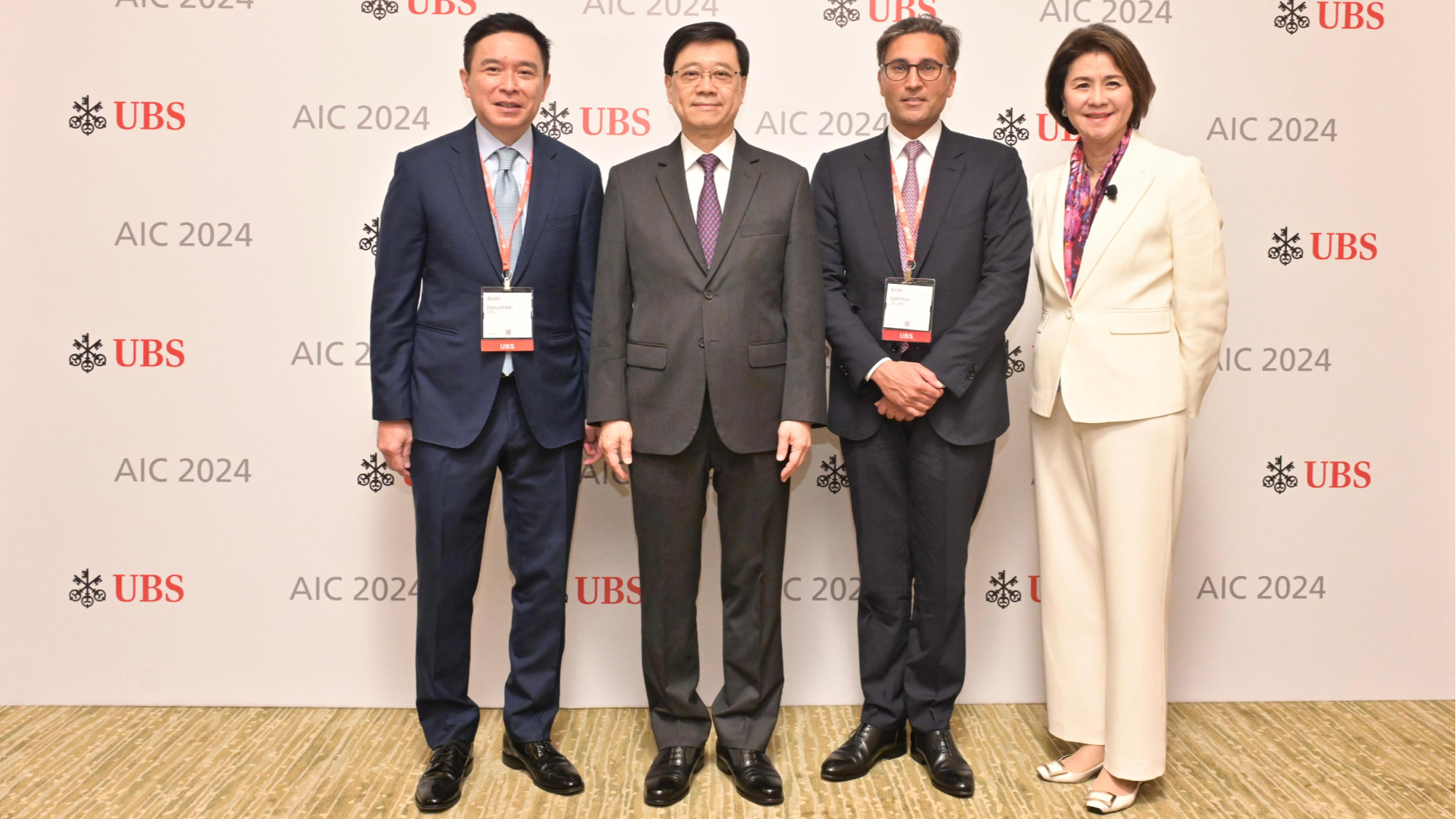
Hong Kong Chief Executive John Lee Ka-chiu on Tuesday said he expects half of the companies in the city to be using artificial intelligence in their operations by the end of this year, adding that the city is “keenly aware” of the key role technology plays in the future of investment.
“Technology and innovation is a central priority of the Hong Kong Special Administrative Region government. That includes applying AI technology to fast-track our smart city and digital government ambitions,” Lee said in his speech at the Asian Investment Conference presented by Swiss banking giant UBS.
Among the initiatives, the city plans to introduce a new integrated fund platform that will function as a communications hub, a business center and an information portal targeting retail funds
He said the government is implementing more than 100 digital government and smart-city initiatives, while also expediting the establishment of an AI supercomputing center in Cyberport, a tech hub in the Southern district, to meet the demand from institutes and the industry for computing power.
READ MORE: Nearly half of HK's AI firms struggle to recruit tech talent
Regarding the financial sector, Hong Kong has been ramping up efforts to help accelerate digitalization and product innovation, aiming to provide the public with inclusive, more convenient, less expensive financial services.
Among the initiatives, the city plans to introduce a new integrated fund platform that will function as a communications hub, a business center and an information portal targeting retail funds.
The platform, currently in development, will cover the full distribution cycle and value chain for retail funds in Hong Kong to reduce entry barriers to the industry and enable market participants to improve the distribution of fund products to their clients.

According to Lee, the city’s fintech community today counts around 1,000 companies and startups, offering a wide range of services encompassing mobile payment and cross-boundary transfers for financial consultancy, wealth management, blockchain, and more.
The Swiss bank’s flagship investment event convened over 3,000 attendees, including corporate representatives from more than 300 companies in 15 markets
In March, the average daily transactions over the Faster Payment System, which facilitates real-time retail payment services by connecting banks and e-wallet operators, rose by 30 percent year-on-year, totaling nearly HK$1.5 billion ($19.2 million).
The Swiss bank’s flagship investment event convened over 3,000 attendees, including corporate representatives from more than 300 companies in 15 markets.
“We have global investors from 28 different markets and corporate representatives from 15 markets, demonstrating Hong Kong’s important role as a global financial center and investment hub,” said Edmund Koh, president of Asia-Pacific at UBS.
Addressing the financial gathering, Koh also highlighted the “urbanization and the future of our cities” in his welcome speech.
READ MORE: HK establishes center that uses AI to identify sports elites
Data from the Q Series report from the UBS Evidence Lab show that just under 58 percent of the world’s population, or 4.77 billion people, are expected to live in cities by 2025, compared to about 54 percent, or 3.98 billion people in 2015.
Also, the UBS Evidence Lab’s research points to there being $1.5 trillion of capital expenditure slated for the 64 new cities currently under construction globally.
“The race towards livable, smart, interconnected and net-zero cities will power the next phase of sustainable growth, in our view,” Koh said, citing tremendous economic opportunities in emerging regions including the Guangdong-Hong Kong-Macao Greater Bay Area.


